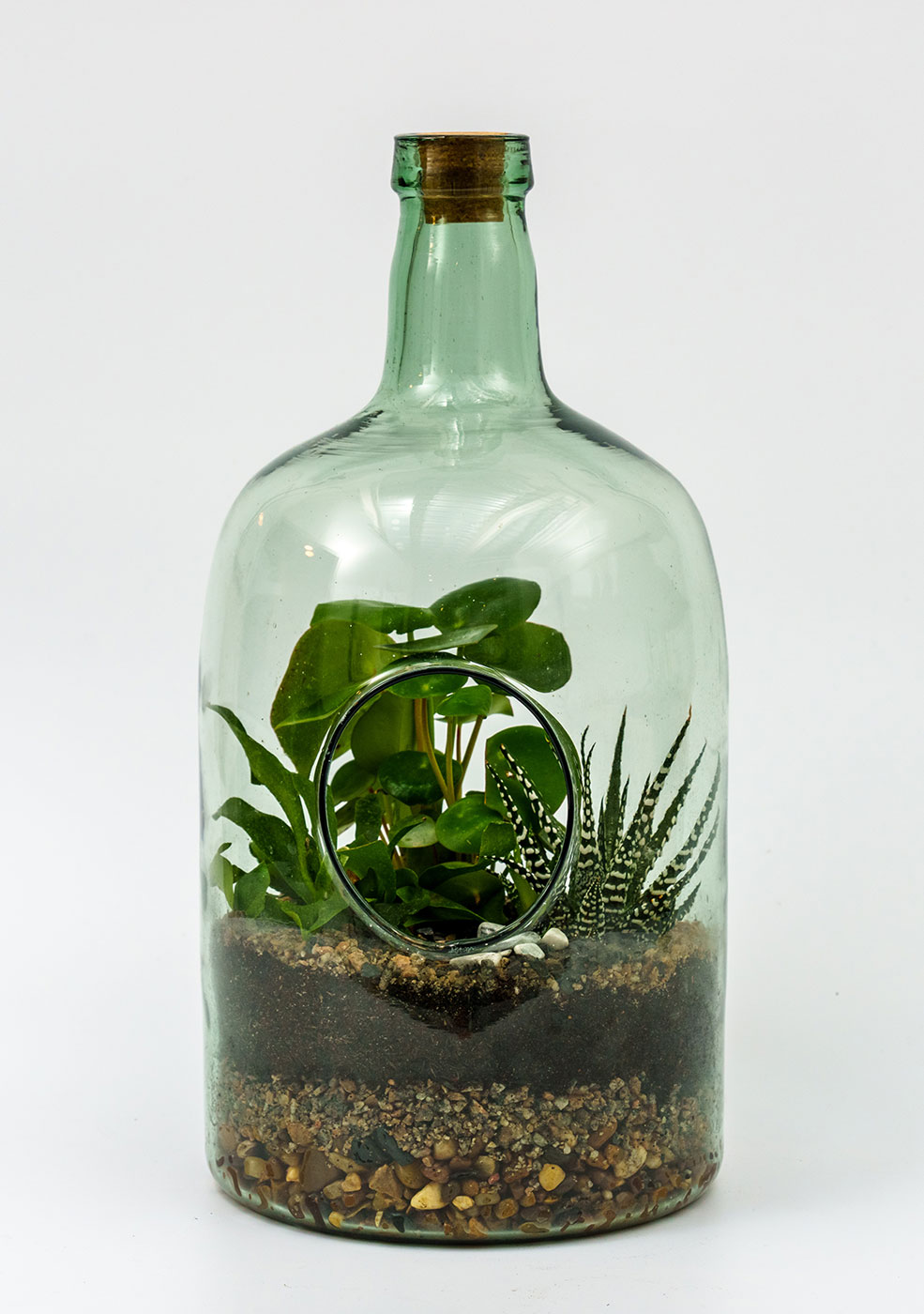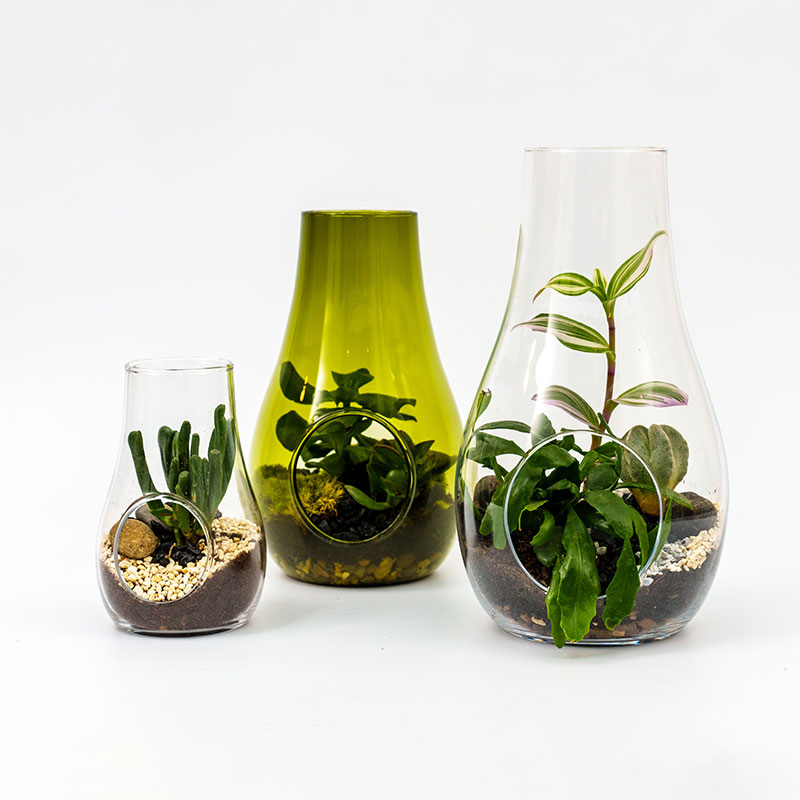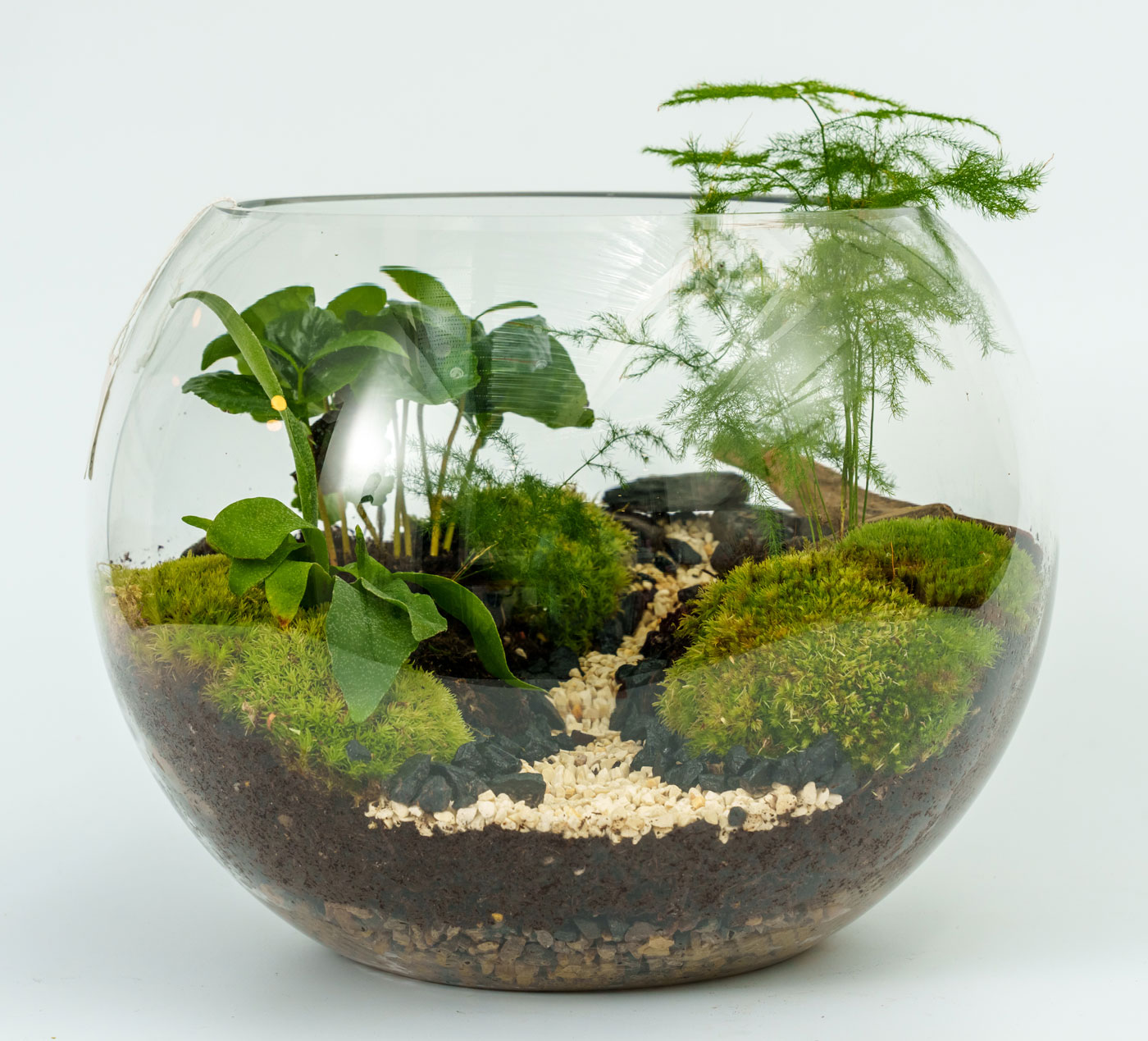Terrariums are fairly low maintenance and the plants growing inside them will largely look after themselves. Closed jars will create their own ecosystem and even become self-watering. Where you keep your terrarium is crucial for the plants’ survival, so it's worth paying attention to the light requirements of each plant before planting them together.
LIGHTING:
Open top terrariums require high amounts of light, so keep them in a bright spot but out of direct sunlight as this could cause the contents to overheat. Similarly, keep your terrarium away from radiators or other heat sources that could cause overheating.
Watering
We suggest using a mister and spraying the soil directly, unless full of ferns avoid spraying the plants directly.
Always check moisture levels before watering, and only water when the soil is powder dry (if in doubt, don’t water it). In winter the plants will consume much less water than in the summer months. Condensation on the glass or water in between the stones in the bottom are signs that there is way too much water in the terrarium. If this is the case, remove any lid and leave in a bright warm spot to dry it out.


In winter check your terrariums one a month, and water them lightly every 4-6 weeks. In summer months terrarium will need more water. In the height of summer check weekly, and water lightly every 1-2 weeks. N.B. Only water them if they’re dry, regardless of how long it has been since they were last watered.
Fern planters will need a bit more water than the succulent ones and the plants will need a little mist. If the soil is beginning to dry out, mist the terrarium in small doses. Larger terrarium plants can receive extra water with a spray bottle at the base of the stem to ensure water gets into the soil underneath. N.B. you can always add more water but can’t remove it so easily!
MAINTENANCE:
If you see any dead or dry leaves, remove them immediately from the terrarium to avoid the unwanted spread of mould or fungus, also prune any over grown plants. Note that plants prefer to be pruned during spring and summer months, so we don’t recommend any pruning to be carried out over winter.

Contact Funky Flowers
We would love to hear from you.


